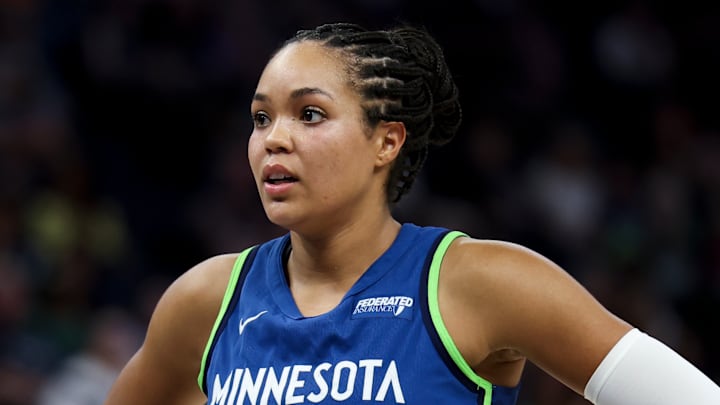Over the holiday weekend a WNBA fan raised a question on X: if Breanna Stewart and Napheesa Collier are both Vice Presidents of the Women's National Basketball Player's Union (WNBPA) and are cofounders of the professional 3x3 league Unrivaled, is there a conflict of interest present by having Stewart and Collier at the table while the WNBPA negotiates a new Collective Bargaining Agreement (CBA) with WNBA leadership?
The question caught the eye of Collier, who fired off a reply of her own: "While everyone else was enjoying fireworks, you were thinking about how me and & Stewie of all people are conspiring to force a lockout that would result in less money year-round for WNBA players??"
So let me get this straight….
— napheesa collier (@PHEEsespieces) July 5, 2025
While everyone else was enjoying fireworks, you were thinking about how me and & Stewie of all people are conspiring to force a lockout that would result in less money year-round for WNBA players??🧐😂😂😂 https://t.co/jOiF5TRiAB
The question of whether or not Collier and Stewart are conspiring against their WNBA colleagues and teammates is ridiculous — both have pristine reputations as champions of the WNBA and are strong advocates for advancing the league as a whole.
But the question of whether or not there is any kind of conflict of interest at play isn't completely unfounded, whether or not there is any reason to suspect there might be. At the end of the day, Collier and Stewart are heading what many perceive to be the WNBA's biggest competition, a league that has already been questioned by WNBA GMs who were concerned about a potential increase in injuries ahead of the beginning of this season.
Napheesa Collier and Breanna Stewart are beacons of good in the WNBA
That this topic hasn't been raised before is likely due to the fact that Collier and Stewart are well known for their long-time advocacy for women's basketball, equity in the WNBA, and the pursuit of greatness for as many women as possible. The idea that either could operate in bad faith is difficult to even begin to debate, let alone give any degree of seriousness.
But if the WNBA is to be treated like any other league or professional organization in the world, it's one worth at least raising, if only to be disproven. As Stewart told Front Office Sports' Annie Costabile Saturday, no one has mentioned a conflict of interest so far — and there doesn't seem to be a reason to.
WNBPA executive director Terri Jackson has not raised any concerns, Stewart said. "If [Jackson] was to think that it would be a conflict of interest, then she would let us know. But I don’t see how or why when we’re just trying to both uplift and amplify both leagues to play together," she explained.
Unrivaled has provided an alternative to WNBA players
Unrivaled launched its inaugural season in January with 30 roster spots and average salaries of $200,000 — a huge leap from the WNBA's league minimum of $66,079. Having the ability to play in Unrivaled, which was hosted in Miami this year, gave players the opportunity to stay home in the US instead of traveling overseas.
The WNBPA is preparing to argue for increased salaries as well as increased revenue sharing during CBA negotiations this year, and undoubtedly the experience of Unrivaled has impacted some of those conversations — but that would be true whether or not Collier and Stewart were heavily involved in the WNBPA. The league's players deserve more across the board, and if there are two players who have demonstrated an investment in the sport and in their fellow athletes, Collier and Stewart.
It's not clear how the pair would immediately benefit if there is indeed a WNBA lockout next season, especially since such a lockout would likely not be called for until well after Unrivaled's second season has concluded. If one theory is that a 2026 WNBA lockout could benefit Unrivaled in its third season in 2027, it's also unlikely Unrivaled could — or would want to — immediately be able to accommodate the number of WNBA players who would suddenly be without their main job.
More questions are part of the WNBA's growing pains
Growth demands more from everyone, and the fact that Collier and Stewart have always proven to be trustworthy advocates of the WNBA doesn't mean they can or should operate without scrutiny. A fundamental part of the league's growth is that everyone — fans, players, coaches, teams, media, and front offices — needs to be prepared to be asked questions that need answers (and preferably without becoming defensive while doing so). There are more eyeballs on the WNBA than ever before, and more questions are being asked — a reality that isn't going anywhere anytime soon.
In the end, some of those questions might not feel good, but they can (and should) still be answered.
